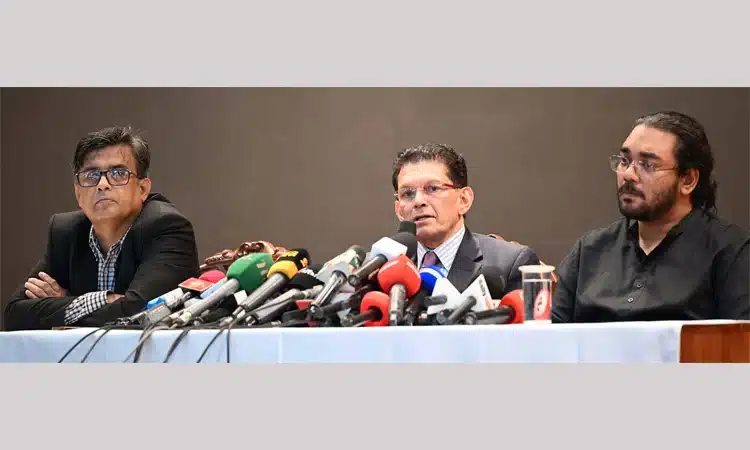National Security Adviser Dr. Khalilur Rahman today ruled out allowing a corridor through Bangladesh for Myanmar, saying the government has neither discussed nor intends to discuss such a proposal with any party.
“There has been no discussion with anyone regarding giving a ‘corridor’ to Myanmar through Bangladesh, and we will not even discuss it,” Dr. Rahman said at a media briefing held at the Foreign Service Academy.
He clarified that current discussions with the United Nations (UN) are solely focused on facilitating the delivery of humanitarian aid such as food and medicine, through some channels, to Myanmar’s Rakhine State, which is facing a severe humanitarian crisis.
Dr. Rahman emphasized that any future decisions will be made in consultation with all relevant stakeholders.
“We can’t give anyone any free pass,” he added, underscoring the importance of protecting Bangladesh’s national interests.
The security adviser said if Dhaka decides to allow aid transportation to Rakhine through a cross-border channel, Bangladesh will only maintain border security to scrutinize the aid.
The aid, only medicine and food, will be totally managed by the UN, and it would come from the allocation from the Rohignyas who have been residing at the camps inside Bangladesh.
Responding to a question, Rahman said Bangladesh will only consider allowing aid to Rakhine through its land, if Arakan army shows that it does not favour of ethnic cleansing.
In response to a question, the National Security Adviser firmly stated that Bangladesh is not under any external pressure to provide such a corridor. “We are not under pressure from any country, not even from the United States,” he said.
Referring to the Rohingya crisis, Dr. Rahman said the country is already bearing the burden of hosting over 1.2 million forcibly displaced Myanmar nationals and cannot accept any additional influx.
“Bangladesh’s focus remains on the repatriation of the Rohingyas to Myanmar as Dhaka believes that this is the only solution,” he said.
“It has to be sustainable repatriation. They have to go back. They have to stay there (in Myanmar),” Dr. Rahman asserted.
He dismissed any notion of miscommunication between government bodies, noting that the National Security Office, the Ministry of Foreign Affairs, and the Bangladesh Army coordinate closely.
According to the adviser, the ‘corridor’ discourse initially surfaced in the media of a neighbouring country.
Rahman said that he had not seen any serious discussion over the Rohingya crisis in the last seven years during the previous regime. “The issue (Rohingya crisis) became a dead issue,” he added.
However, Rahman noted that the interim government has again brought the matter to the global forefront.
Chief Adviser’s Press Secretary Shafiqul Alam and Deputy Press Secretary Apurba Jahangir were also at the media briefing.
Cox’s Bazar Life Desk/BSS










